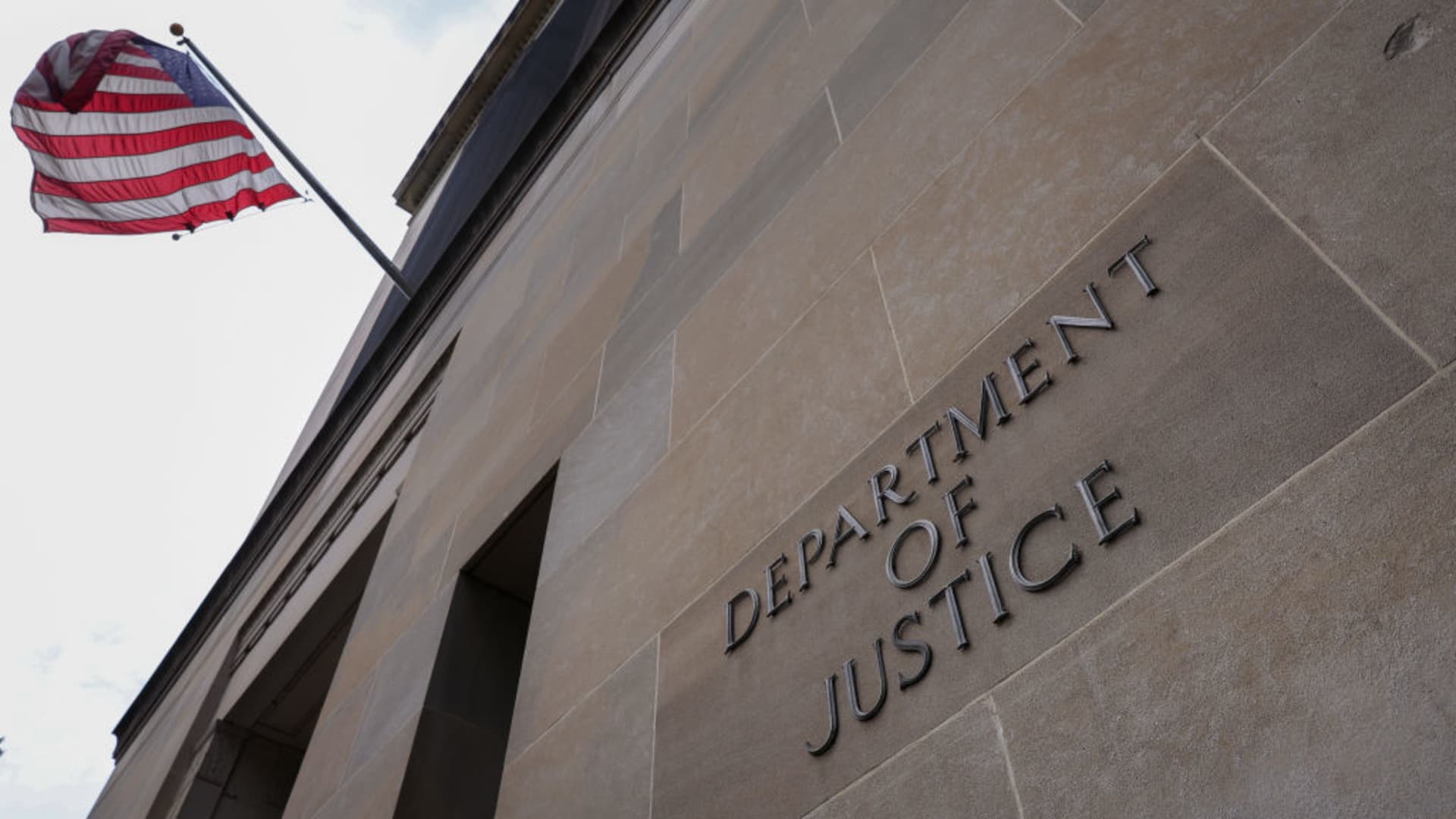The U.S. Department of Justice in Washington, D.C., June 20, 2023.
Kevin Dietsch | Getty Images News | Getty Images
The Department of Justice on Monday announced criminal charges against two people and the guilty plea of a third person for orchestrating a worldwide $1.9 billion cryptocurrency Ponzi fraud scheme known as HyperFund, among other names.
The Securities and Exchange Commission, in a related civil action, charged two of those individuals for their involvement in the alleged crypto pyramid scheme, which collapsed in 2022.
The three defendants charged by the DOJ falsely claimed that investors in HyperFund would receive “substantial returns paid from cryptocurrency mining operations, which did not in fact exist,” said acting Assistant Attorney General Nicole Argentieri of the DOJ’s Criminal Division.
“The level of alleged fraud here is staggering,” said Erek Barron, the U.S. Attorney for Maryland.
Charged in the criminal case were Sam Lee, an Australian citizen who lives in Dubai, United Arab Emirates, who is accused of co-founding HyperFund, as well as two HyperFund promoters, Rodney Burton of Miami, and Brenda Chunga of Severna Park, Maryland.
Lee, a 35-year-old also known as Xue Lee, is charged with a single count of conspiracy to commit securities fraud and wire fraud. Burton, 54, who is also known as “Bitcoin Rodney” is charged with one count of conspiracy to operate an unlicensed money-transmitting business and another count of operating an unlicensed money-transmitting business.
Both men face a maximum possible sentence of five years in prison if convicted.
Chunga, who is also known as Bitcoin Beautee, pled guilty Monday to one count of conspiracy to commit securities fraud and wire fraud, for which she faces the same possible maximum sentence.
Chunga separately agreed to settle civil charges by the SEC for violating the anti-fraud and registration provisions of U.S. securities laws. As part of that settlement, she agreed to disgorge money she made in the scheme and civil fines to be determined later.
The SEC complaint says she received more than $3.7 million from both the HyperFund platform and from investors.
“She used her earnings to fund extravagant personal expenses and help recruit others into the scheme by showing off the potential wealth to be earned through HyperFund,” the complaint said.
Lee was charged by the SEC with the same violations.
HyperFund was also known as HyperTech, HyperCapital, HyperVerse and HyperNation.
The DOJ alleges that from June 2020 through November 2022, Lee and his co-conspirators sold investment contracts online through HyperFund’s platform and claimed that investors would earn returns of between .5% and 1% each day until their original investment was either doubled or tripled through revenue from large-scale crypto mining.
In July 2021, HyperFund began to block withdrawals by investors, the DOJ alleges.
This story originally appeared on CNBC

